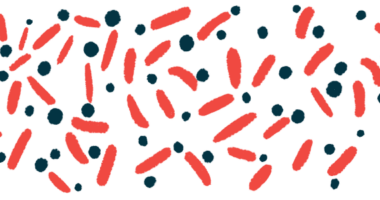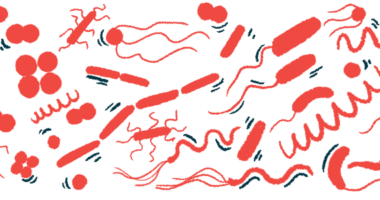BX004 wins orphan drug status for CF-related pulmonary infections
Therapy is a cocktail of phages for P. aeruginosa, delivered via nebulizer

The U.S. Food and Drug Administration (FDA) has granted orphan drug status to BX004, BiomX’s inhaled phage therapy being developed for chronic Pseudomonas aeruginosa pulmonary infections in people with cystic fibrosis (CF).
The designation seeks to encourage new therapies for rare diseases, those affecting fewer than 200,000 people in the U.S. It provides several incentives, including exemption from FDA application fees, assistance in drug development, and seven years of market exclusivity if the treatment is approved.
“Persistent and deadly pulmonary infections from P. aeruginosa remain a major source of morbidity and mortality for CF patients, and BX004 has been designed to address this significant unmet need,” said Jonathan Solomon, BiomX’s CEO, in a company press release.
In CF, thick, sticky mucus accumulates in the lungs and can block airflow and lead to lung inflammation, resulting in symptoms such as shortness of breath and persistent cough.
The mucus provides a fertile ground for bacteria and CF patients commonly have recurrent and serious lung infections, often caused by P. aeruginosa, that contribute to the lung function decline.
Antibiotics are the first treatment for lung infections. However, bacteria can develop resistance to antibiotics if they are administered for too long, or frequently, creating a challenge for treatment. Bacteriophages (or phages), a type of virus that naturally infects and kills bacteria, have shown potential in treating antibiotic-resistant infections with CF.
What is BX004?
BX004 is a cocktail of phages specific to P. aeruginosa, that’s delivered directly into the lungs through a nebulizer.
The therapy’s safety and efficacy were tested in adults with CF and chronic P. aeruginosa infections in a two-part Phase 1b/2a clinicial trial (NCT05010577). Eligible participants are on standard of care CF medications.
In Phase 1, nine patients received an ascending BX004 dose (seven people) or a placebo (two people) for one week. The findings included greater reductions in P. aeruginosa with BX004 than with the placebo.
In Phase 2, 34 CF patients were randomly assigned to be treated with BX004 (23) or receive a placebo (11) twice daily for 10 days. Top-line results showed BX004 led to a clinically meaningful improvements for those with impaired lung function at the start of the study. Quality of life related to respiratory function also improved compared to the placebo.
The treatment was safe and well tolerated, leading to no serious side effects or acute lung symptom worsening associated with it. The reduction in P. aeruginosa burden with therapy was greater than in the trial’s first part, which was attributed to a longer treatment and because the Phase 1 patients didn’t receive the full dose all seven days.
“Based upon positive topline results observed in our Phase 1b/2a trial, we believe BX004 holds significant potential to improve upon the current standard of care, and we look forward to working with the FDA to further advance the clinical development of BX004,” Solomon said.
The therapy was recently granted fast track status in the U.S. This designation is intended for therapies that address unmet medical needs in serious conditions.








